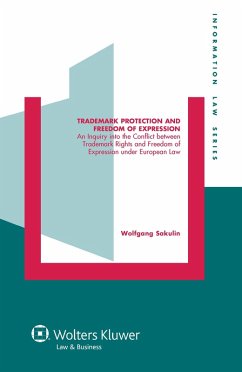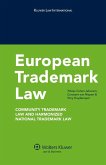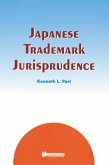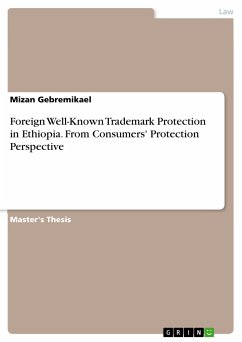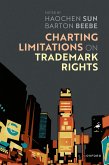Trademark law grants right holders an exclusive right to prevent third parties from using a sign. This can readily be seen as the antithesis of freedom of expression, which arguably includes a right of third parties to non-exclusive use of a sign for a variety of purposes, ranging from informing consumers, to voicing criticism or to artistic expression. Drawing on cultural theory - which has shown that society is involved in a constant struggle about shaping the meaning of signs (including trademarks) - this highly original and provocative book contends that trademark law fails to sufficiently differentiate between commercial purpose and the social, political, or cultural meanings carried by one and the same sign.The author shows that the 'functional approach' to justifying trademark rights taken in current jurisprudence and doctrine is deficient, in that it does not take sufficient account of the fact that trademark rights can restrict the freedom of expression of third parties. Specifically, the exercise of rights granted under the European Trademark Regulation and the national trademark rights harmonized by the European Trademark Directive can cause a disproportionate impairment of the freedom of commercial and non-commercial expression of third parties as protected by Article 10 of the European Convention on Human Rights (ECHR).The author's in-depth analysis explores such elements as the following: - the economic and ethical rationales of trademark rights;- whether trademark rights under European law can be justified by these rationales;- how freedom of expression can serve as a limitation to trademark rights;- what level of protection such freedom of expression grants to third parties;- the role of trademarks of social, cultural, or political importance in public discourse;- chilling effects on public discourse that can be caused by the exercise of trademark rights;- the interpretation of provisions regulating the grant and revocation of trademark rights in light of freedom of expression; and- the interpretation of the scope of protection and the limitations of trademark rights in light of freedom of expression.In effect, the analysis serves to expand the focus of legislators, courts, and trademark registering authorities from the interests of trademark right holders, who seemingly are granted ever more protection, to the justified interests of third parties. The critical analysis of existing trademark law leads the author to clearly identify the areas of trademark law in which the law needs to be reinterpreted and the areas in which legislative action should be taken, with recommendations for a number of limitations that should aid legislators in drafting concrete amendments. The new insights and imperatives provided by this book are sure to prove useful to both courts interpreting existing provisions of trademark laws and to legislators who are faced with the challenges of drafting new rules or revising existing laws.
Dieser Download kann aus rechtlichen Gründen nur mit Rechnungsadresse in A, B, BG, CY, CZ, D, DK, EW, E, FIN, F, GR, HR, H, IRL, I, LT, L, LR, M, NL, PL, P, R, S, SLO, SK ausgeliefert werden.

